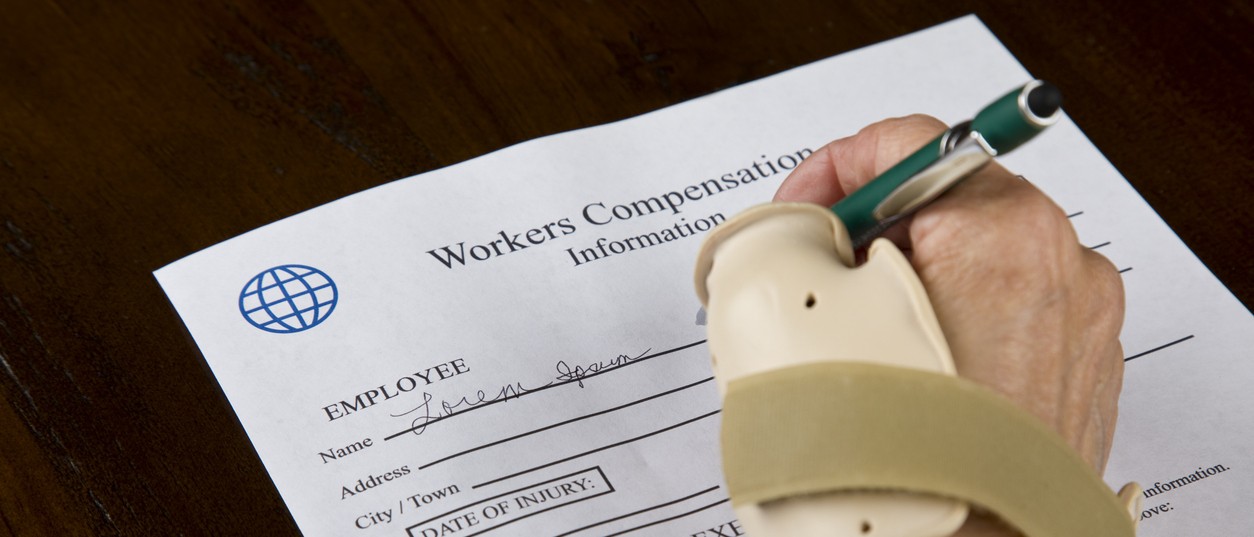Impact of Workers’ Compensation on Future Employment and Benefits in Florida
Imagine a construction worker who suffers a back injury while lifting heavy materials. They file for workers’ compensation and receive benefits to cover their medical expenses and lost wages. However, they worry about how this claim might affect their ability to secure future employment or access other benefits. This scenario is common, particularly in industries with higher risks of workplace injuries, such as construction, manufacturing, and healthcare. Understanding workers’ compensation and its potential impacts on future employment and benefits is crucial for Florida workers navigating the system.
Understanding Workers’ Compensation in Florida
Workers’ compensation is a form of insurance designed to benefit employees injured or become ill due to work-related activities. Its primary purpose is to ensure workers receive financial and medical support without the need to file a lawsuit against their employer. Florida’s workers’ compensation system is governed by Chapter 440 of the Florida Statutes.
Under Florida law, most employers are required to carry workers’ compensation insurance. For example:
- Employers in the construction industry with one or more employees must provide coverage.
- Non-construction employers must provide coverage if they have four or more employees.
Workers’ compensation benefits typically include coverage for:
- Medical treatment and rehabilitation.
- Temporary total disability (TTD) or temporary partial disability (TPD) benefits.
- Permanent impairment benefits.
- Death benefits are paid to the families of workers who die due to a workplace injury.
Florida Statute §440.15 outlines the medical services provided under workers’ compensation, ensuring employees receive necessary care. Meanwhile, Florida Statute §440.105 protects against fraudulent claims, safeguarding the system for legitimate claimants.
Can Workers’ Compensation Affect Future Job Opportunities?
One common concern among injured workers is whether filing a workers’ compensation claim will hinder their ability to secure future employment. While employers cannot legally discriminate against individuals for filing a claim, the reality can be more nuanced.
Some employers may view a history of workers’ compensation claims as a potential liability. They might worry about the worker’s ability to perform job duties or the risk of future injuries. However, employers in Florida must adhere to anti-discrimination laws.
Florida law prohibits retaliation against workers for filing a legitimate workers’ compensation claim. Employers cannot refuse to hire, terminate, or otherwise discriminate against a worker based on their claim history. Violations of these protections can result in legal consequences for the employer.
When discussing your workers’ compensation history during job applications, it is crucial to approach the topic carefully and strategically. Consider the following five key tips to guide you when applying for a new job:
- Be Honest: If asked about past injuries or claims, provide truthful answers without volunteering unnecessary details.
- Highlight Recovery: Emphasize your successful recovery and readiness to perform job duties.
- Focus on Skills: Steer the conversation toward your qualifications and strengths.
- Prepare References: Include professional references who can vouch for your work ethic and reliability.
- Know Your Rights: Familiarize yourself with anti-discrimination laws to address any potential bias confidently.
Effects of Workers’ Compensation on Benefits
Filing for workers’ compensation can have implications for other benefits. It is essential to understand how these systems interact to avoid unexpected challenges.
In Florida, receiving workers’ compensation benefits does not necessarily disqualify you from unemployment benefits. However, eligibility depends on your ability to work. If you are physically unable to work due to your injury, unemployment benefits may not apply.
Workers’ compensation benefits can affect Social Security Disability Insurance (SSDI) or Supplemental Security Income (SSI) payments. The Social Security Administration (SSA) may reduce your SSDI benefits if your combined income exceeds a threshold known as the “workers’ compensation offset.”
When considering how workers’ compensation might affect your future, it’s essential to consider potential long-term medical and financial implications. Planning and understanding the interactions between benefits can help you avoid surprises. Here are five key considerations for medical benefits and long-term care:
- Future Medical Costs: Ensure your settlement accounts for ongoing medical needs.
- Insurance Coverage: Understand how your workers’ compensation benefits interact with private health insurance.
- Disability Ratings: Your impairment rating may affect long-term disability claims.
- Care Plans: Plan for rehabilitation or long-term care if needed.
Filing for Workers’ Compensation Without Risking Future Issues
Accurate and thorough documentation is essential when filing a workers’ compensation claim. Mistakes or omissions can lead to delays or denials, potentially impacting your future. An experienced attorney can guide you through the claims process, ensuring compliance with Florida’s laws and advocating for your best interests.
Additionally, filing a workers’ compensation claim can be complex, and avoiding common mistakes is critical to ensuring a claim is successful. Five common pitfalls to watch out for and strategies to prevent them include:
- Delaying the Report: Report your injury to your employer immediately.
- Inaccurate Details: Provide clear and accurate information about your injury.
- Ignoring Medical Advice: Follow your healthcare provider’s recommendations to avoid jeopardizing your claim.
- Settling Too Soon: Avoid accepting a settlement before fully understanding your medical prognosis.
- Overlooking Deadlines: File your claim within the required timeframe to preserve your rights.
Resolving Disputes and Protecting Your Rights
Disputes can arise during the workers’ compensation process, but Florida law provides remedies to protect workers.
When your workers’ compensation claim is denied, it’s important to take prompt action to secure the benefits you are entitled to. Here are the steps to appeal a denied claim:
- File a Petition for Benefits with the Office of the Judges of Compensation Claims (OJCC).
- Attend mediation to attempt resolution.
- Proceed to a hearing if mediation fails.
Florida law allows workers to pursue legal action against employers who retaliate or discriminate due to a workers’ compensation claim. Under Florida Statute §440.205, employers are prohibited from discharging or retaliating against an employee for filing a workers’ compensation claim. Remedies for such violations may include reinstatement, back pay, and damages.
If benefits are unjustly delayed or denied, a workers’ compensation attorney can help you pursue the compensation you deserve, potentially including penalties against the insurer.
Get Professional Legal Guidance for Your Workers’ Compensation Case
Florida’s workers’ compensation system can be challenging, especially when future employment and benefits are at stake—an experienced attorney at GONZ.LAW GROUP can provide invaluable support, ensuring your rights are protected every step of the way. Don’t let uncertainty about the process or its impacts hold you back from securing the benefits you deserve.
If you have questions about your workers’ compensation claim or need assistance, contact GONZ.LAW GROUP at 561-639-7858 for a free consultation.



